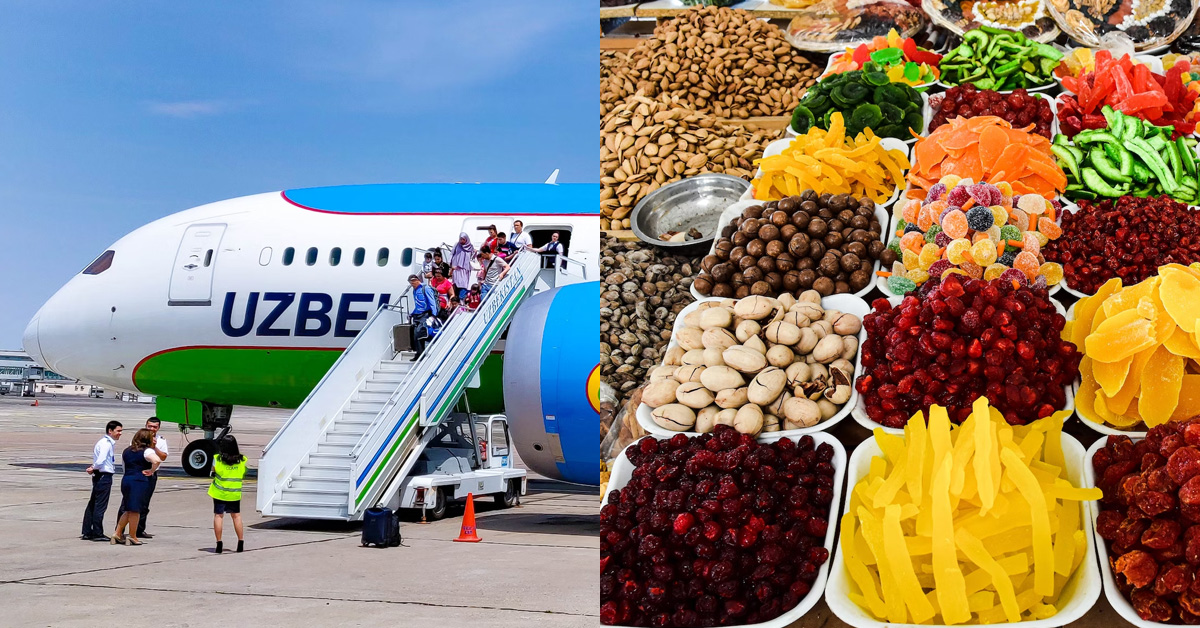Uzbek cuisine is a unique blend of Central Asian, Middle Eastern, and Russian influences. It is known for its rich and flavorful dishes, which are often made with a variety of spices and herbs.
Uzbekistan is a landlocked country in Central Asia, and its cuisine reflects the region’s nomadic heritage and the abundance of ingredients that are available in the area. The country’s cuisine is also heavily influenced by its history, with dishes that have been passed down through generations and adapted to suit the tastes of different cultures.
Uzbek cuisine halal or not?
Is Uzbek food halal?
Most Uzbek food is halal, as the majority of the population in Uzbekistan is Muslim and follows halal dietary laws.
However, it is always best to check with the restaurant or food provider to ensure that the food is prepared according to halal standards.
What kind of food do Uzbek eat?
Uzbek cuisine is a mix of Central Asian, Middle Eastern, and Russian influences. Some popular dishes include:
- Plov (pilaf) – a rice dish cooked with meat, vegetables, and spices
- Shashlik (kebab) – grilled meat skewers
- Lagman – a noodle soup with meat and vegetables
- Samsa – a pastry filled with meat or vegetables
- Manti – steamed dumplings filled with meat or pumpkin
- Shurpa – a hearty soup with meat and vegetables
- Osh (soup) – a soup made with meat, vegetables, and noodles
- Non (bread) – a round, flat bread that is a staple in Uzbek cuisine
- Chuchvara – small dumplings filled with meat and served in a broth
- Halva – a sweet dessert made from sesame seeds and sugar.
How can you tell if the food is halal in Uzbekistan?
In Uzbekistan, halal food is commonly available, especially in Muslim-majority areas. To ensure that the food is halal, you can look for halal certification from a recognized Islamic organization or ask the restaurant or food vendor if their food is halal.
You can look for the halal logo or label on the packaging of pre-packaged food items. It is also recommended to avoid pork and alcohol, as they are not considered halal.
Is it hard to find halal food in Uzbekistan?
According to research, it may be challenging to find halal food in Uzbekistan outside of major cities like Tashkent.
However, many restaurants in Tashkent offer halal options, and some hotels also provide halal meals upon request.
It is recommended to do some research and ask locals for recommendations to find halal food options.
Is Uzbek food healthy?
Uzbek cuisine is generally considered healthy as it includes a variety of fresh vegetables, fruits, and herbs. Uzbek dishes are often cooked with minimal oil and are rich in protein, fiber, and vitamins.
However, some traditional Uzbek dishes may be high in calories and fat, such as plov (rice pilaf) and shashlik (grilled meat skewers). It is important to consume Uzbek food in moderation and balance it with a healthy lifestyle.
What is Uzbek food similar to?
Uzbek food is similar to other Central Asian cuisines, such as Kazakh, Kyrgyz, and Tajik cuisines.
It also shares some similarities with Middle Eastern and Mediterranean cuisines, due to the influence of the Silk Road trade route.
Steps to find halal food in Uzbekistan
Here are some tips in finding halal food in Uzbekistan:
- Research halal food options in Uzbekistan: Start by researching halal food options in Uzbekistan. You can use search engines, social media, or online directories to find halal restaurants, cafes, and food stores in the country.
- Check for halal certification: Once you have a list of halal food options, check if they have halal certification. Halal certification ensures that the food is prepared according to Islamic dietary laws and is free from any haram (forbidden) ingredients.
- Ask locals: If you are unsure about the halal status of a particular food item or restaurant, ask locals for recommendations. They can guide you to the best halal food options in the area.
- Look for vegetarian options: If you are unable to find halal food options, look for vegetarian options. Vegetarian food is usually free from meat and other haram ingredients.
- Avoid non-halal food: If you are unable to find halal food options, avoid non-halal food such as pork, alcohol, and meat from non-halal sources.
- Bring your own food: If you are traveling to remote areas where halal food options are limited, consider bringing your own food. You can pack non-perishable halal food items such as canned food, nuts, and dried fruits.
- Be cautious when eating out: When eating out, be cautious about the food you order. Ask the restaurant staff about the ingredients used in the food and how it is prepared. Avoid dishes that contain haram ingredients.

